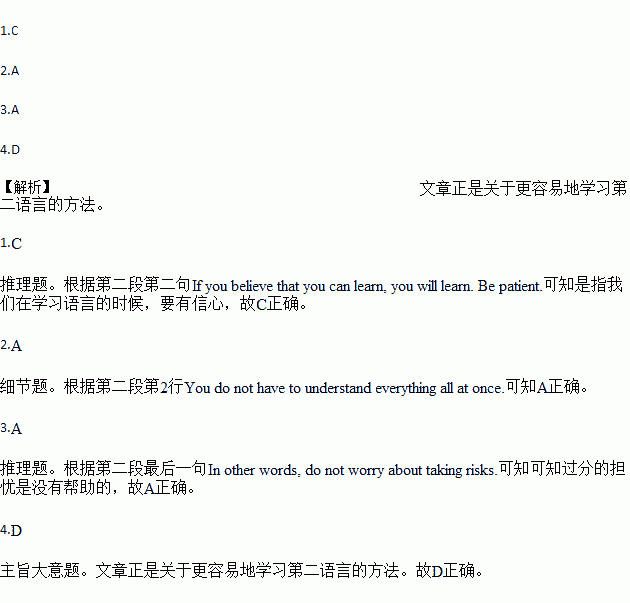题目内容
Some people learn a second language easily. Others have trouble learning a new language. How can you help yourself learn a new language, such as English? There are several ways to make learning English a little easier and more interesting.
The first step is to feel positive about learning English. If you believe that you can learn, you will learn. Be patient. You do not have to understand everything all at once. It is natural to make mistakes when you learn something new. We can learn from our mistakes. In other words, do not worry about taking risks.
The second step is to practice your English. For example, write a diary every day. You will get used to writing it in English, and you will feel comfortable expressing your ideas in English. Several weeks later, you will see that your writing is improving. In addition, you must speak English every day. You can practice with your classmates outside class. You will make mistakes, but gradually you will become comfortable communicating in English.
The third step is to keep a record of your language learning. You can write this in your journal. After each class, think about what you did. Did you answer a question correctly? Did you understand something the teacher explained? Perhaps the lesson was difficult, but you tried to understand it.
You must be positive about learning English and believe that you can do it. It is important to practice every day and make a record of your achievements. You will enjoy learning English, and you will feel more confident in yourself.
1.To feel positive about learning English means _________.
A. if you are patient, you will learn
B. if you keep a record, you can improve
C. if you believe you can learn, you will learn
D. if you make mistakes, you can learn from your mistakes
2.When you learn English, you do not need to _________.
A. understand everything all at once
B. practice with your classmates outside class
C. write a diary regularly
D. feel more confident in yourself
3.What does the underlined word “journal” in Paragraph 4 mean?
A. Diary. B. Composition.
C. Magazine. D. Newspaper.
4.What is the main idea of this passage?
A. It is very important to learn a second language.
B. Some people learn a second language easily while others do not.
C. Don’t worry about making mistakes when learning a second language.
D. There are some ways to help you learn a second language more easily.

